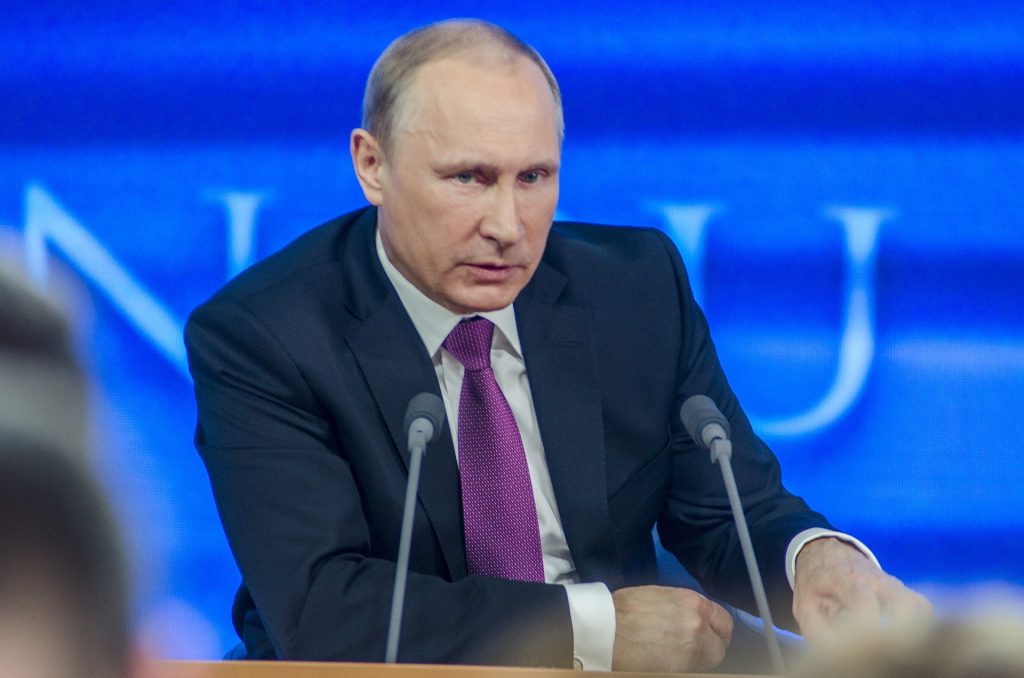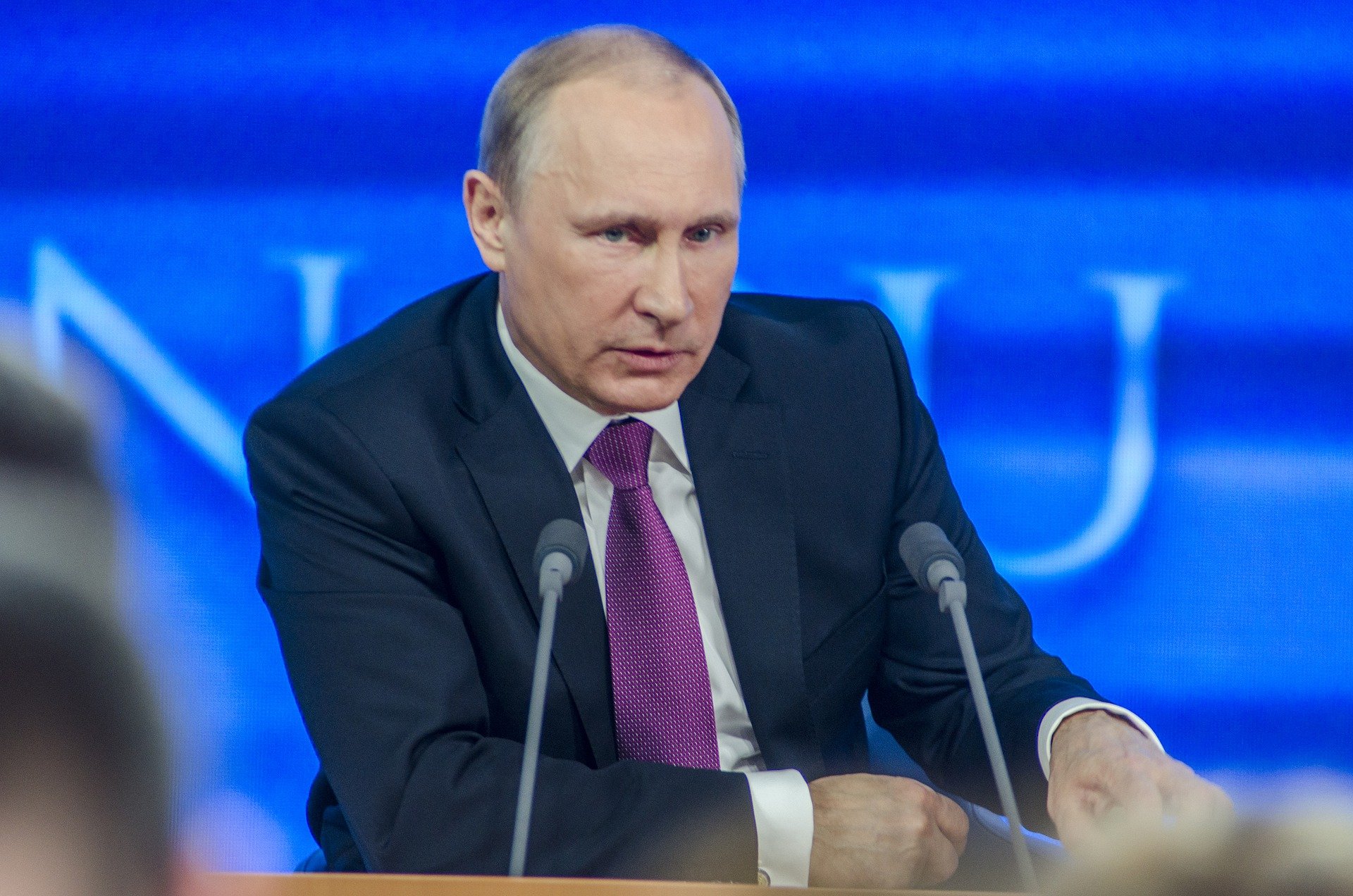Authors: Davide Gobbicchi, Igor Shchubetun and Fabrizio Napoli.
After months of diplomatic efforts and mutual misunderstandings between Russia and the West, Vladimir Putin finally invaded Ukraine. Although the attack was predicted by experts throughout the world, its ferocity and scale did surprise the majority. Most analysts expected Moscow to enter the Donbass region, conquer it rapidly, and grant it independence from Kiev, in a repetition of what happened to Abkhazia and South Ossetia following the 2008 Russo-Georgian War. Yet on the 24th of February, Putin ordered a full-scale invasion of Ukraine, unleashing the biggest military attack that Europe has witnessed since WWII. After 4 days of fighting a tougher-than-expected Ukrainian resistance and an increasingly involved West, on February 27th Russia’s president put nuclear forces on high alert, in what could be seen as a propagandistic attempt to “flex muscles” at a conflict whose duration and ending seem increasingly uncertain.
To assess the strategic significance of Ukraine for Russia and motivation behind Putin’s actions, it is imperative to understand how Russia perceives itself. Historically, it has been afflicted with two existential dilemmas. First, with regards to its position in the East-West dichotomy, where Russia’s geographic position between Europe and Asia creates a unique culture which is neither of both, and allows the country to shift between periods of affinity to the West and periods of closeness to the East; as Dostoevskij famously said, “In Europe we were Tatars, but in Asia we too are Europeans”. Second, the debate of nation-state vs. multinational state, where Russia’s size creates a highly heterogeneous country in which the Russian majority needs to coexist more or less peacefully with the many different minorities having separated languages, religions, and cultures.
Historically, the Imperial Era, beginning with Peter the Great and ending with the Russian Revolution of 1917, solved the first dilemma by promoting Europeanism. This was represented with the shift of the capital from Moscow to Saint Petersburg. The second dilemma was resolved by choosing between Russianism and multi-nationalism, i.e., Pan-Slavism.Imperial Russia therefore perceived itself as a European power deeply rooted in its orthodox tradition.
The Soviet Era (1922-1991) provided different solutions to the two dilemmas. The East/West dichotomy was solved by assigning Russia (now USSR) the unique role of Eurasian superpower in between the two worlds, belonging to neither of the two and yet extending its influence on both. The second dilemma was addressed through the policy of коренизация (korenizatsiya), because of which USSR became, at least officially, a multi-nation state of equally important nations. The victory during the WWII further strengthened these two discourses of a Eurasian, multinational state.
However, the early post-Soviet years of Yeltsin (1991-1999) once again changed Russia’s approach to the two dilemmas, orienting Russia towards the West and promoting Russian identity over that of the minorities (causing backlashes in the Caucasus and central Asia such as the Chechen War and the quasi-independence of Tatarstan). Modern Russia now had to become a Western, nation-state.

When Putin took power in 2000, Russia in the midst of a strong identity crisis. Its rapid westernization did not grant it the role of equal partner to the USA, but instead relegated Russia to a vassal state which faced economic hardships. The loss of its status in the international arena and the absence of perceived economic gains deriving from it created a resentment throughout the population that a portion of the Russian elite started channeling towards the West; Putin was the leader of such a group. Being a former KGB spy whose childhood had been marked by the horrors of WWII-besieged Leningrad, Vladimir Putin used his private life and the growing popular sentiments to rebuild Russia’s identity from scratch, mainly on two pillars.
First, the worship of WWII (The Great Patriotic War – in Russian); the ultimate expression of Russia’s greatness. The war was previously used by the Soviets to keep the USSR together (for everyone, from Bishkek to Vilnius, fought in the war). Putin, influenced by his own childhood, continued “exploiting” the war to promote conservative and patriotic values able to legitimize his political orientation and to keep the country together. This is why Putin tried to legitimize the Ukrainian invasion by claiming to “denazify” the country.
Second, the soviet Nostalgia. Putin’s bittersweet feeling towards the USSR reflects that of a wide portion of the country’s older generations (of which the president himself is part) and derives from the too-rapid transition of Russia from “protagonist in a bipolar world” to “supporting actor in a multipolar one”. This sentiment is used by Putin to promote the reappropriation of Russia’s great power status and justify the actions that “need” to be taken to achieve this goal. Several of Putin’s speeches regarding Ukraine reflect this, where he focuses on Ukraine’s role as “little Russia” and “founding member of the USSR”.
The two historical dilemmas that afflicted Russia throughout the centuries were reframed by Putin to his own advantage. The East/West dichotomy was deconstructed into two parallel positions, Russia’s relations with the West and the East.
With the West, it changed from an inferiority complex to a principle equality in which Russia no longer had to imitate the West, but could follow its own path of values (those produced by the worship of WWII and Soviet Nostalgia). Hence granting Putin more freedom of action. This was proven in a speech given by Russia’s president in 2013, where he stated that “it is evident that it is impossible to move forward without spiritual, cultural and national self-determination...We can see how many of the Euro-Atlantic countries are actually rejecting their roots, including the Christian values that constitute the basis of Western civilization. They are denying moral principles and all traditional identities: national, cultural, religious and even sexual.” With the East, it shifted from perceiving Asia as a place to teach European values, to perceiving it as a place from which to learn alternative ones. This change helped Putin justify Russia’s approach to China and its simultaneous shying away from the West.
The multinational state/nation-state dilemma was solved by orienting the country towards becoming a nation-state, promoting discourses aimed at homogenizing the country (such as “Russia for Russians”) and reviving pre-Soviet Russian cultural traits (an example is the gradual social prestige that Putin has granted to the Patriarch of Moscow in the past 15 years). The importance given to Russian ethnicity allows Putin to intervene in foreign countries with Russian minorities without the risk of appearing illegitimate in the eyes of Russian society (the 2014 invasion of the Donbass serves as the best example).
Having illustrated the pillars of Putin’s conception of Russia, it’s easy to understand the importance of Ukraine to him: Ukraine is currently the transfiguration of WWII Europe that needs to be saved from an enemy whose ideals and values are rotten - that is, the West. Keeping Ukraine away from the West would then be morally tantamount to winning WWII, and it would not only provide Putin’s discourses new strength, but also validate Russia’s identity of a great power by preventing (even if momentarily) the post-Soviet space from disintegrating.
Vladimir Putin has spent the last 20 years slowly shaping his country into what he believed “Mother Russia” to be, and it is highly unlikely that any agreement will stop him from pursuing his ideals. This however, does not mean that this is what Russia needs to be, and it is for the Russian people to prove.

No comments.